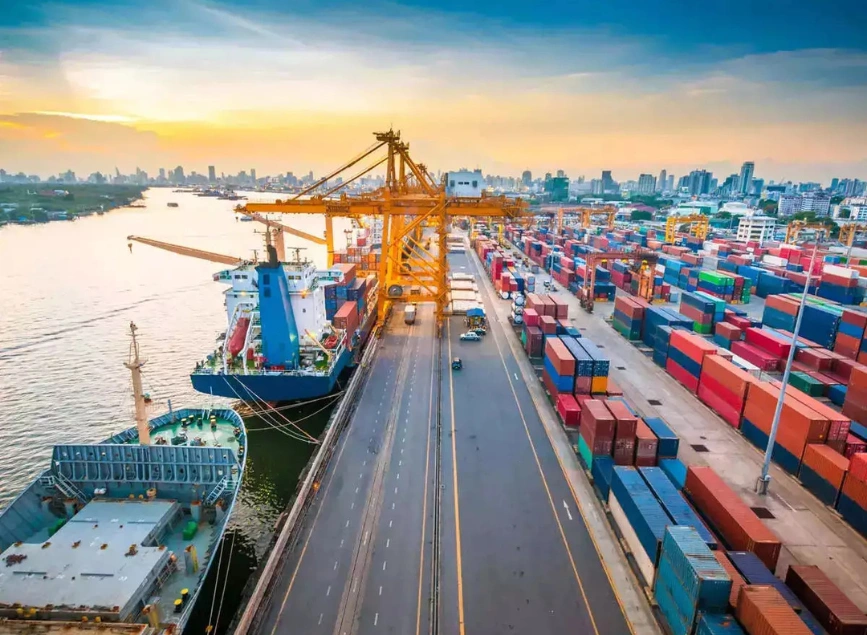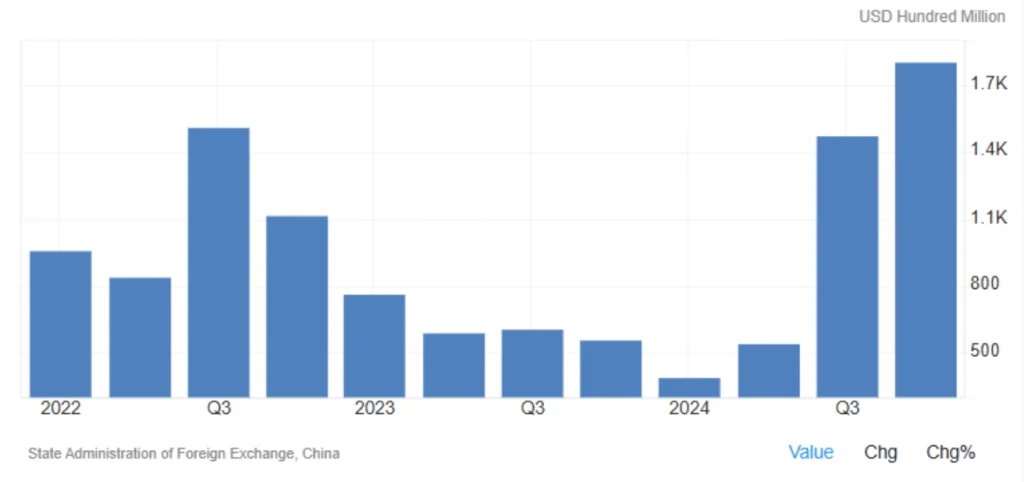
China’s Current Account Surplus Hits a Record High in Q4 2024
China has once again made headlines in global finance, achieving its highest-ever current account surplus of 180.7 billion dollars in the fourth quarter of 2024. This marks a substantial rise from 56.2 billion dollars in the same period of 2023 and 148 billion dollars in the third quarter of 2024, signaling a major shift in the country’s economic landscape.
So, what’s driving this surge, and what does it mean for China and the global economy? Let’s break it down.
What’s Behind China’s Record-Breaking Surplus?
Booming Trade Surplus
One of the biggest contributors to this record surplus is China’s strong export performance.
- Exports surged by 11 percent, reaching 936.4 billion dollars
- Imports declined by 0.4 percent, falling to 686.8 billion dollars
With increased production capacity and slowing domestic consumption, Chinese businesses are shifting their focus outward, expanding their presence in global markets.
Shrinking Services Deficit
Another factor driving the surplus is a drop in the services trade deficit, which fell from 61 billion dollars to 47.3 billion dollars. This improvement suggests a shift in spending patterns and possibly a rise in China’s competitiveness in service-related industries.
Narrowing Primary Income Deficit
China also saw a reduction in its primary income deficit, from 41.8 billion dollars to 26.3 billion dollars. This indicates stronger returns on foreign investments and reduced capital outflows.
Stable Secondary Income Account
Unlike other areas, secondary income remained relatively unchanged at 4.6 billion dollars, showing little movement in remittances and transfers.
Why This Matters for China and the Global Economy
China’s growing current account surplus is more than just a number—it reflects deeper economic shifts that could have widespread implications.
Stronger Global Competitiveness
With exports rising, China is cementing its position as a dominant global supplier, increasing its influence in international trade.
Weaker Domestic Demand
The drop in imports suggests that China’s domestic consumption is slowing down, which could signal potential challenges for long-term economic stability. A reliance on exports means that China’s growth is increasingly tied to external demand rather than internal spending.
Impact on Global Trade Relations
A growing surplus could reignite trade tensions with the United States and the European Union, as China’s export dominance may be seen as a threat to local industries in other economies.

Understanding the Current Account: Why Is It Important?
What Is the Current Account?
The current account measures a country’s international trade balance, foreign investment income, and transfer payments. It serves as a key economic indicator of financial health.
A surplus means a country exports more than it imports.
A deficit means a country imports more than it exports.
Why Is China’s Surplus Significant?
- Economic strength as a higher surplus indicates China’s ability to produce and sell more goods globally than it consumes
- Foreign currency reserves increase since more exports bring in foreign currency, strengthening China’s reserves and providing economic stability
- Market influence as China’s rising exports could affect global supply chains, trade policies, and even commodity prices
Potential Risks and Challenges
While the surplus highlights China’s economic strength, it also presents risks.
Trade Tensions Could Escalate
A massive trade surplus may lead to renewed trade conflicts, particularly with the United States and the European Union, which have previously raised concerns about China’s trade practices.
Sluggish Domestic Economy
Lower imports point to weakening consumer demand within China, which could slow down economic growth in the long run.
Currency Implications
A growing surplus could put downward pressure on major global currencies, such as the euro and yen, affecting exchange rates worldwide.
What’s Next for China’s Economy?
China’s ability to maintain a high current account surplus suggests continued economic strength on the global stage. However, the decline in domestic demand remains a concern, and policymakers will need to balance export growth with internal economic stability.
Looking ahead, global investors and policymakers should closely watch how China’s trade policies, currency movements, and international relations evolve in response to this shifting economic dynamic.
Will China sustain this momentum, or will global trade pressures force a shift in strategy? Only time will tell.
Share
Hot topics

Trading with price action
When they start, most traders will believe that they must discover the ideal indicator for success. At otet markets, we see this every day.They test a variety of indicators, including...
Read more




Submit comment
Your email address will not be published. Required fields are marked *